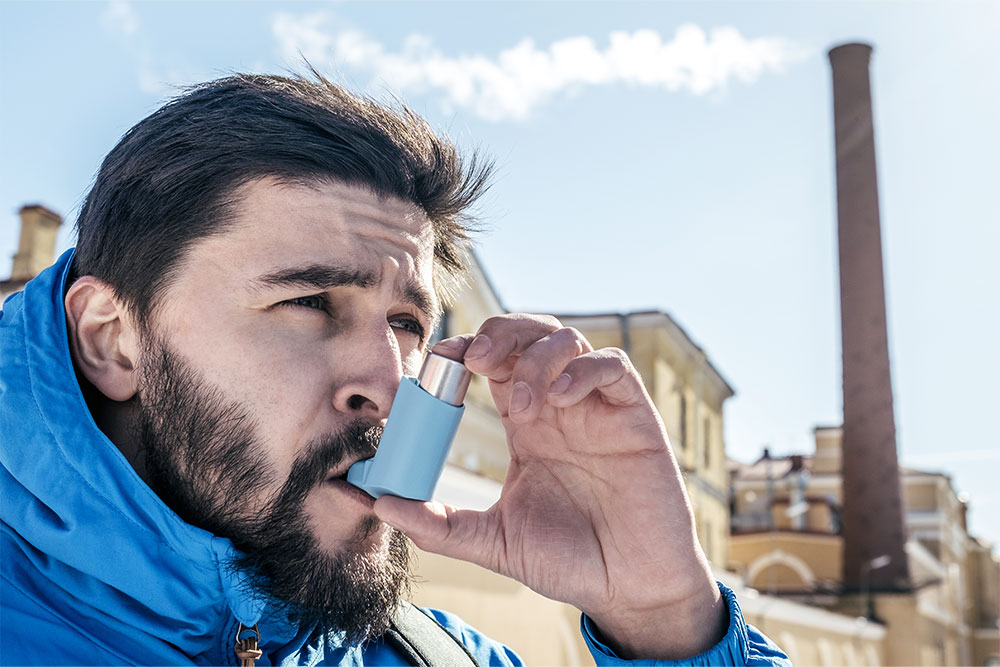
Safety training is now mandatory for all individuals who use substances containing a monomeric diisocyanate concentration greater than 0.1% for professional or industrial purposes.
The new training mandate came into force on 24 August 2023 as part of the Health and Safety Executive’s regulation of hazardous substances, known collectively as UK REACH. Under the regulations, every employee must now hold a valid certificate proving they have completed the relevant safety training before handling products containing diisocyanates.
Training Requirements
Employers must provide the relevant training for their employees and managers. The employer is also responsible for storing and managing their staff’s training records and certificates.
As the level of risk presented by handling substances containing diisocyanates varies depending on concentration levels and application, there are three corresponding levels of training.
Level 1 Training
Level 1 training is mandatory for staff who use substances containing diisocyanates for professional applications.
The training course should cover a range of topics, including:
- Risks of exposure
- Control measures, such as the use of personal protective equipment or ventilation
- Safe handling, including proper cleaning techniques and how to manage leakages
Level 2 Training
Level 2 Training is mandatory for staff who use substances containing diisocyanates for industrial applications at room temperature.
The Level 2 training course should cover all of the topics from the Level 1 programme, with additional content covering:
- Management of change
- Risks specific to industrial applications
Level 3 Training
Level 3 training is mandatory for staff who use substances containing diisocyanates in applications at high speeds or temperatures over 45°C.
Alongside the vital safety principles covered in Level 1 training, there is additional content covering:
- Handling of hot or warm chemical substances
Certification
Trainees must pass an end-test to obtain certification they have successfully completed the training. Training certificates are valid for five years. Employees must repeat the training after the five years have expired to renew their certificate.
Employers must collect evidence of their employees’ successful completion of any training programmes. To achieve this, employers are recommended to store training certificates.
It is hoped that establishing a new standard for certification and making it an employer’s responsibility to manage training records will make it easier for regulatory bodies to check employees have completed the relevant training.
Labelling
It should be noted that in addition to new training requirements, all products containing more than 0.1% diisocyanates must be labelled with this statement:
“As of 24 August 2023, adequate training is required before industrial or professional use of this product.”
Why Training is Now Mandatory
Diisocyanates are a form of isocyanate, a known irritant and respiratory sensitiser. Exposure to diisocyantes via a single, significant event or repeated low levels of exposure can cause respiratory sensitisation.
After an individual has formed a sensitivity to diisocyanate, repeated exposure can trigger respiratory symptoms similar to that of an asthma attack. Attacks triggered by workplace exposure to diisocyanates are known as occupational asthma attacks. These attacks can be fatal for workers suffering from underlying respiratory conditions.

In addition to occupational asthma attacks, exposure to diisocyanates can also cause:
- Skin irritation, including dermatitis
- Eye irritation, including conjunctivitis
- Congested nasal passages
- Sore and/or dry throat
- Persistent coughing
As with other hazardous substances, training is one of the best ways to protect workers. Although cases of occupational asthma are relatively low, workers without awareness of the risks and control measures associated with diisocyanates are facing avoidable harm.
Training Providers
Training and certification will only be recognised if provided by an occupational health and safety expert. There are no further requirements placed on training providers beyond sufficient expertise.
Our online Diisocyanates Training course will give workers a comprehensive understanding of diisocyanates, covering their properties, exposure methods and associated health risks. Trainees will learn about risk controls and how to implement them in the workplace, supporting compliance with REACH legislation and training requirements.


























































































































































































































































































































































































































































































































































































































































































































































